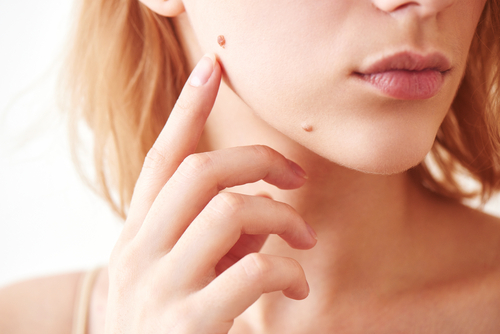Most people do not pay enough attention to their moles. However, patients who visit Dr. Elizabeth Callahan and Dr. William Adams regularly have questions about self-examinations of the skin and what to look for when trying to spot the signs of skin cancer. The team at SkinSmart Dermatology works routinely with patients to determine if they have areas of concern that need to be evaluated further during annual skin cancer screenings. Let’s talk more about moles and sun safety in Sarasota, Florida.
What Are Moles?
Moles are an area of skin pigmentation that occurs when cells called melanocytes grow in clusters. These areas can be anywhere on the body, and they can come in several colors and sizes depending on each person’s skin type. Generally speaking, moles tend to appear during early childhood and puberty, although for some people, they may not appear until adulthood.
What Should You Look For?
Because moles are pigmented areas of skin, keep an eye out for any changes or abnormalities in their shape, size, or color. If you notice anything unusual about your moles, see our dermatologists at SkinSmart Dermatology right away so they can check things out further with a biopsy if necessary. Early detection of skin cancer is key.
How Do You Protect Your Moles From the Sun?
One of the most effective ways to protect your moles is to practice sun safety when outdoors. This means wearing sunscreen and protective clothing, avoiding direct sunlight during peak hours, and limiting your time in the sun overall. This can reduce your risk of developing skin cancer later on — making these lifesaving steps for our patients!
Schedule an Appointment With Dr. Elizabeth Callahan or Dr. William Adams Today!
At SkinSmart Dermatology, we know how important it is to keep an eye on your moles and other areas of skin pigmentation. If you have concerns or questions about your moles, be sure to speak with one of our experienced dermatologists at our Sarasota, FL, office today! Call 941-308-7546 to request a consultation appointment and an initial evaluation with our dermatologists to monitor for the signs of skin cancer.


